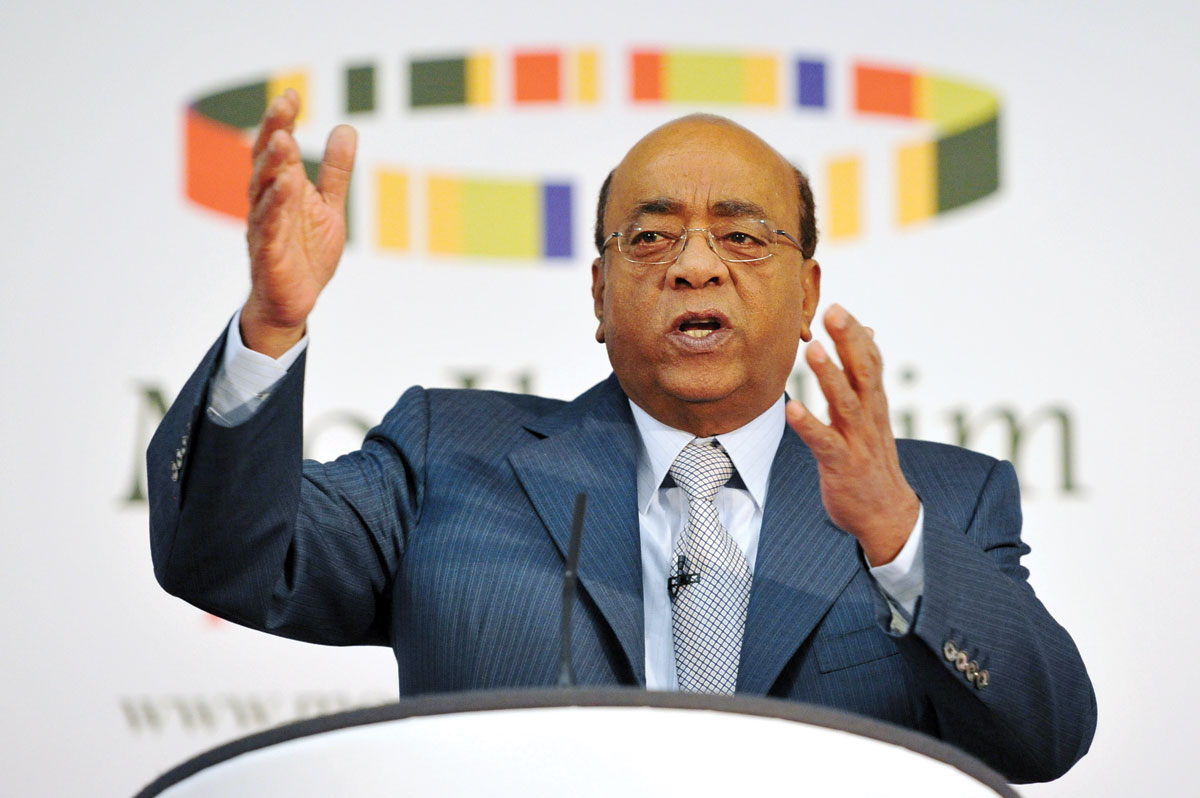
2016 Mo Ibrahim African Governance index - Its implications
There is now a think tank in Africa – the Mo Ibrahim Foundation--that seeks to provide a continental mechanism for assessing governance performance in the short and medium terms.
Advertisement
The Mo Ibrahim Foundation has set up what is described as Ibrahim Index of African Governance (IIAG).
With the IIAG in place, it will no longer be possible for African governments to manipulate economic and political figures or tell big lies to gain political advantage.
The IIAG began functioning in 2007 and releases its assessment of African countries’ governance performance annually.
IIAG’s 10th edition which, for the first time covers a period of 10 years, was released early October, 2016.
To achieve its objectives of giving meaning to democratic governance on the African continent, the Mo Ibrahim Foundation stated in its 2016 IIAG report that the “IIAG provides a framework for citizens, governments, institutions and the private sector to assess accurately the delivery of public goods and services and policy outcomes across the continent, and for each of the 54 African countries”.
The IIAG “is both a tool to help determine and debate governance performance and a decision-making instrument with which to govern”.
How does the IIAG function?
The Mo Ibrahim Foundation defines governance as “the provision of political, social and economic goods and services that a citizen has to expect from his or her state and that a state has the responsibility to deliver to its citizens”.
The IIAG has an advisory council which is a “body of academics, policy makers and private-sector representatives, the majority of whom are African whose specific expertise ensures that the IIAG is the most comprehensive, relevant and robust tool to measure African governance”.
IIAG “consists of more than 90 indicators built up into 14 sub-categories, four categories and overall measurement of governance. These indicators include official data, personal assessments and citizen surveys provided by more than 30 independent global institutions”.
In the words of the Mo Ibrahim Foundation, the IIAG report “represents the most comprehensive collection of data on African governance”.
The four main indicators by which the IIAG assesses African governance are: safety and rule of law; participation and human rights; sustainable economic opportunity and human development.
In a general overview on the topic – Ibrahim Index of African Governance 2007-2016 -- the index report noted, in parts, that “almost half of Africa’s 54 countries have recorded their worse score in (safety and rule of law) category in the last three years”.
“This is holding back the continent’s progress and remains the biggest challenge to its future,” the report added.
On the “overall governance” performance indicator, the IIAG report listed the following countries as the top-10 performers – Mauritius (first) with 79.9 points out of 100; Botswana (second) with 73.7 points); Cape Verde (third) with 73.0 points; Seychelles (fourth) with 72.6 points); Namibia (fifth) with 69.8 points.
The others are: South Africa (sixth) with 69.4 points; Tunisia (seventh) with 65.4 points; Ghana (seventh) with 63.9 points Rwanda (ninth) with 62.3 points and Senegal (10th) with 60.8 points.
The last three countries are: Central African Republic (25.7 points); South Sudan (18.6) points and Somalia (10.6) points.
On the rule of law category, Mauritius placed first with 94.9 points; South Africa (second) with 94.6 points; Botswana (third) with 93.0 points; Cape Verde (fourth) with 88.7 points and Ghana (fifth) with 88.6 points.
On African countries that registered impressive improvement, the index indicated that Cote d’voire came first with the greatest progress in governance with a score of (+13.1); Togo and Zimbabwe (second) with (+9.7); Liberia followed with (+8.7); Rwanda, next with (+8.4).
Ghana and South Africa are listed as the eighth and 10th most deteriorated countries, respectively, during the decade – 2006-2015.
According to a statement published jointly with the index, the 10th edition of the IIAG “is the most comprehensive analysis of Africa’s governance undertaken to date that brings together a decade of data to assess each of Africa’s 54 countries against 95 indicators drawn from 34 independent sources”.
Concerned about the pronounced deterioration in the safety and rule of law category, the statement noted that 33 out of 54 African countries occupied by almost two-thirds of the continent’s population – had experienced a worrying decline from 2006 to 2015.
The index shows that Ghana has, over the decade under review, declined in three out of four indicators.
On human rights, Ghana ranked fourth out of 54 countries with 73.1 out of 100. This, according to the report, represents a marginal increase of 0.1.
On the sustainable economic opportunity category, Ghana scored 39.1 out of 100 and placed 15th out of 54 countries.
Ghana’s economy reflected a decline of 4.2 during the decade.
On the rule of law category, Ghana placed 14th; accountability, 23rd; personal safety, 11th; and national security, 5th.
Ghana’s Poor performance
What explains Ghana’s poor performance, especially, in the rule of law, accountability, and personal safety categories?
The Montie FM contempt case in which three personalities of the radio station were sentenced to four months’ imprisonment for threatening to kill some Supreme Court Judges and their subsequent release on the President’s prerogative of mercy – falls outside the period under review.
However, such a trend reflects a further poor performance for Ghana in the category of rule of law and governance.
The notion that the Ghanaian citizen is not quite safe in his or her own country is worrying.
Attempt by the National Media Commission to abridge mass media freedom by way of a broadcasting law – is a clear violation of the right of access to information.




